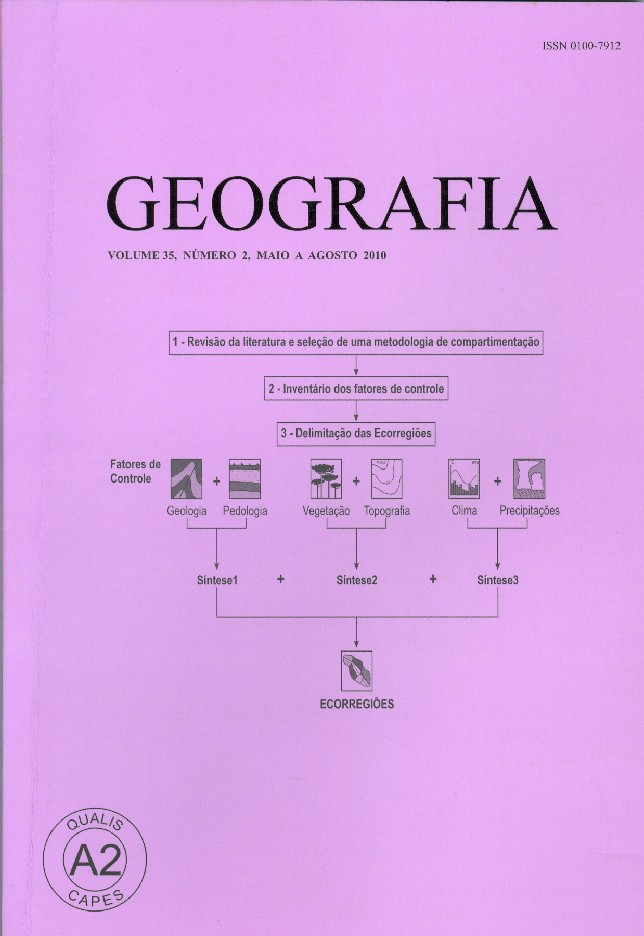SUSTENTABILIDADE DA AGROPECUÁRIA CAMPONESA EM ASSENTAMENTOS DE REFORMA AGRÁRIA NO CEARÁ
Resumen
Em assentamentos rurais brasileiros foram identificadas dinâmicas de sustentabilidade institucional e ambiental através de Correlações Múltiplas. Para tal, se analisaram as interconexões entre variáveis de Condições de Preservação Ambiental, Estrutura Territorial, Órgãos de Assessoramento, Assessoria Técnica, Créditos e Organização Rural. Os principais resultados evidenciaram que (i) as condições de preservação ambiental dependem do estímulo ao agro-silvo-pastoralismo com caprinos e da necessidade de créditos adequados; (ii) as ONGs atuantes nesses assentamentos, surgem como dinamizadoras da organização rural através da catalisação político-social lograda pelo MST e (iii) o nível de associativismo e sindicalismo praticados e a diversificação dos sistemas produtivos, entendida essa, como o conjunto das estratégias de diminuição dos riscos e vulnerabilidades inerentes às zonas desfavorecidas e frágeis, são estimulados pelo funcionamento econômico e técnico dos organismos públicos ou privados de assessoramento. Conclui-se que, o meio ambiente institucional quando afinado às necessidades da agricultura camponesa pode favorecer a estrutura interna e conseqüentemente a organização produtiva e social sustentável em assentamentos rurais de Reforma Agrária. Palavras-chave: Assentamentos Rurais. Reforma Agrária. Campesinato. MST. Meio Ambiente. Peasant Farming sustainability in Agrarian Reform Rural Settlements, Ceará In some Ceará’s rural settlements have been identified the dynamic of institucional and environmental sustainability. Through Multiple Correlations the interconnections were analyzed among Environmental Preservation Conditions, Territorial Structure, Agencies of Advising, Technical Assessorship, Credits and Agricultural Organization. The main results show that: (i) the Environmental Preservation Conditions depend on the stimulation to the agro-forest-pastoralism with goats and the necessity of adequate credits; (ii) the Non Governamental Organizations operating in these settlements, appear as agricultural organization dynamistic factor through the MST politic-social catalyser and (iii) the level of practised association and unionism, as well as the diversification of the productive systems (understood like the inherent strategies of risks and vulnerabilities reduction to the disfavored and fragile zones) are stimulated by the economic and technician functioning of the public or private advising organisms. The institucional environment when sharpened to the necessities of peasant agriculture can favor the internal structures. In consequence, the sustainable productive and social organization in rural settlements of the Agrarian Reform are guarantied. Key words: Rural settlements. Agrarian Reform. Peasantry. MST. Natural EnvironmentDescargas
Publicado
Número
Sección
Licencia
Los autores mantienen los derechos de autor y otorgan a GEOGRAFIA el derecho de primera publicación, estando los artículos licenciados simultáneamente bajo la Licencia Creative Commons BY 4.0, que permite compartir y adaptar los artículos para cualquier propósito, siempre que se cumplan los créditos y disposiciones de derechos de imagen, privacidad. o derechos morales. Se puede acceder a otras atribuciones legales en: https://creativecommons.org/licenses/by/4.0/legalcode.en.

Geografia, Rio Claro, SP, Brasil- eISSN 1983-8700 - Licencia Creative Commons BY 4.0,





